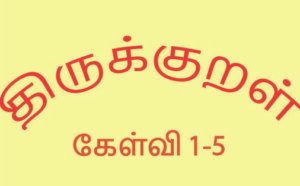We offer professional development workshops on topics related to language and literacy development. While these workshops are for teachers of primary classes, parents and others interested in helping children outside of school may also participate. Our workshops include:
1. Building Comprehension using Interactive Read Aloud.
2. Workshop on Developing Phonological Awareness in Young Children (Virtual)
Children must be good readers to achieve academic success. To become proficient readers, they must have strong phonological awareness skills. What are phonological awareness skills, and what do they have to do with learning to read?
Beginning readers must learn that letters represent speech sounds. How do they gain this understanding? By becoming aware of how
- Spoken words can be separated into sounds
- Sounds can be combined to form words.
Almost 80% of struggling readers are estimated to have poor phonemic awareness, a key phonological awareness skill. Phonological awareness lays the foundation for strong phonics skills. Fortunately, research shows that these essential skills can be taught through easy, short, structured activities.
Our online workshop will guide KG and early primary teachers (and parents) in learning how to develop these skills in young children so they can be more successful in reading.
The workshop will explore
- What research says about phonological and phonemic awareness,
- Their role in how a beginning reader learns to read in English,
- The link between phonological awareness and phonics
- Differences in reading in English and the Indian languages derived from the Brahmi script
Participants will receive a handout with activities targeting each skill discussed in the workshop. We will review and practice these during the workshop.
The workshop is held in two parts, each lasting 2 hours.
Date:
Part 1: Nov 22
Part 2: Nov 23
Time: 5:30 – 7:30 pm
Fee: Rs. 750.00
Register here.
3. Workshop on Teaching Reading Fluency in the Primary Classes (Virtual)
When we say fluency, we often think of reading words quickly, without stumbling over the words, i.e., reading automatically. However, there are other components to reading fluently, not just automaticity. If children don’t have all these factors, they are not fluent. Why is reading fluency important? There is a strong link between the students’ ability to read fluently and their ability to comprehend the text.
What is the evidence linking reading fluency and reading comprehension? How do we help students stuck at the word level build their fluency skills to read sentences and passages? What about children who do not have the opportunity to hear fluent reading in English outside of school hours?
We at For All Our Kids address these questions in the upcoming workshop on Teaching Reading Fluency in primary classes. The workshop will address the components of reading fluency, discuss the needs of English Language Learners, and practice strategies to use in the classroom. Participants will practice the strategies and take home a packet of handouts to use in their classroom.
Date: Nov 30, 2025
Time: 5.00 – 8.00 pm
Fee: Rs. 500.00
Register here.
4. Workshop on Teaching Vocabulary in the Primary Classes.
Vocabulary is of paramount importance in creating a successful reader. While we often think of vocabulary building as learning the meaning of individual words, a skilled reader uses this knowledge to understand how connected strings of words come together to understand a larger, more complex structure.
Since most of our students learn English once they begin formal schooling, learning English vocabulary comes with unique challenges. Unlike English language learners in English-speaking countries, most of our children have limited exposure to English outside of school. That means they hear and understand fewer words, limiting their ability to store and use words to express themselves. We all know students who cannot express their ideas or answer questions in their own words. How can we help them develop an in-depth knowledge of words, their meanings, and their usage?
Our workshop on Teaching Vocabulary in the Primary Classes addresses these concerns. Participants will learn about
- Research on how children learn and store word meanings
- Selecting words to teach (the three tiers of vocabulary)
- Strategies to teach vocabulary
- Instructional sequence to teach vocabulary
Participants will practice instructional strategies during the session and receive a handout with activities to use in their classes.
Date: Dec 7, 2025
Time: 5.00 – 8.00 pm
Fee: Rs. 500.00
Register here.
5. Workshop on Teaching Reading Comprehension in the Primary Classes.
The purpose of reading is comprehension. The general perception is that students if recognize the words, they’ll understand the information. If it was that simple, all children who can decode the words fluently will understand what they read. We wouldn’t see such diversity in how children comprehend content.
Reading comprehension is not a passive activity. The reader doesn’t “automatically” understand everything about the passage after reading the words in the text. To develop strong reading comprehension, students need certain foundational skills.
Teaching reading comprehension to students must include explicit instruction of learn strategies they can use to comprehend what they read and monitor their thought processes independently.
Participants will learn about
- Research on what good readers do to understand what they read
- The importance of background knowledge in improving reading comprehension
- Teaching comprehension strategies
- How to teach comprehension of fiction and nonfiction texts
- The role of comprehension monitoring
Participants will practice instructional strategies during the session and receive a handout with activities to use in their classes.
The workshop is held in two parts, each lasting 2 hours.
Part 1: Dec 13, 2025
Part 2: Dec 14, 2025
Time: 5.30 – 7.30 pm
Fee: Rs. 750.00
Register here.
6. Webinar for Parents and Preschool Teachers – Building Emergent Literacy Skills.
TBA





